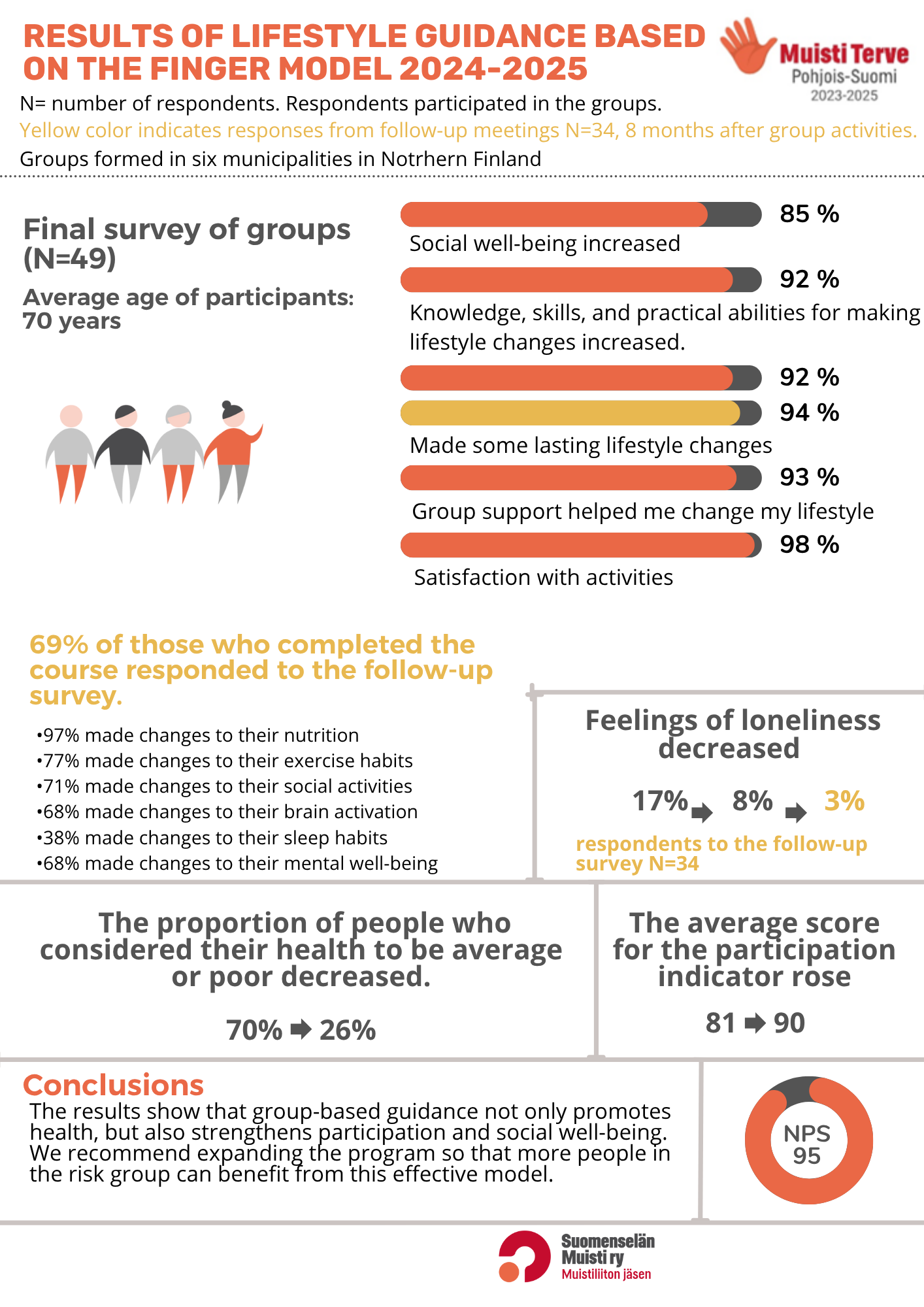RESULTS OF GROUP-BASED LIFESTYLE GUIDANCE
The lifestyle guidance based on the FINGER model, coordinated by the MemoryHealth Northern Finland 2023–2025 project, was launched in 2024 at six pilot locations across Northern Finland. The group activities were carried out in collaboration with professionals and volunteers from wellbeing services counties and municipalities. The groups met over the course of a year, totaling 37–38 sessions. The program included initial and final consultations with a healthcare professional, health and wellness assessments, five nutrition group sessions, 20 physical activity sessions, and 10 cognitive training sessions.
Target Group
A total of 52 individuals participated, with an average age of 70, all belonging to a risk group for developing memory disorders. One quarter of the participants were men. Three participants dropped out.
Methods
Standardized tests and self-assessment questionnaires were used at the beginning and end of the activities, including the participation indicator, SPPB test, and various questionnaires.
Results
Responses were received from 49 participants. Improvements in physical functioning were mainly observed in chair rise and balance. The average score of the participation indicator increased from 81 to 90. The proportion of participants experiencing loneliness decreased from 17% to 8%.
92% of participants made at least one permanent lifestyle change. The proportion of those who rated their health as fair or poor decreased from 70% to 26%.
93% felt that group support helped them make lifestyle changes, and 85% felt that the group activities promoted social wellbeing. The Net Promoter Score (NPS) was 95.
Eight months after the group activities ended, 69% of those who completed the program responded to a follow-up survey. Of these, 94% reported having made a permanent lifestyle change, most commonly in nutrition, physical activity, and mental wellbeing.
Eight months after the program, a follow-up survey showed that participants maintained lifestyle changes most notably in nutrition—for example, reducing salt intake and increasing vegetable consumption.Next came physical activity, such as morning stretching and daily walking. In terms of social activity, participants reported more frequent contact with friends. For mental well-being, activities like dancing and increased reading were mentioned. Cognitive stimulation included daily brain exercises, and sleep improved due to weight loss.
Conclusions
Group-based lifestyle guidance supported participants in making lifestyle changes, improving their sense of participation, and reducing feelings of loneliness. Responses to the follow-up survey suggest that the interventions had a positive and potentially long-lasting impact on the sustainability of lifestyle changes and perceived loneliness.
Best regards
Kati Göös
email: kati.goos@suomenselanmuisti.fi
